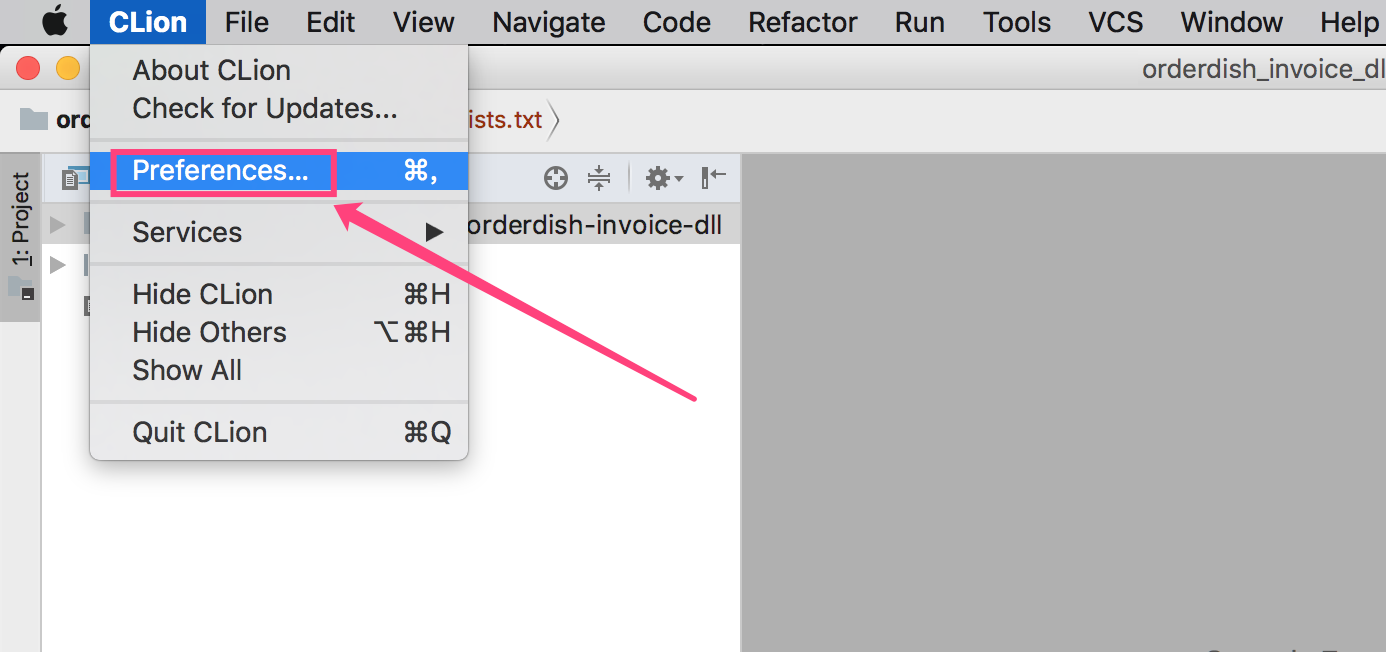
Never returns but that is not declared _Py_NO_RETURN. Implemented with _builtin_unreachable() on GCC in release mode.Ī use for Py_UNREACHABLE() is following a call a function that In release mode, the macro helps the compiler to optimize the code, andĪvoids a warning about unreachable code. Where you might be tempted to put an assert(0) or abort() call.
CLION PYTHON CODE
Use this when you have a code path that cannot be reached by design.įor example, in the default: clause in a switch statement for whichĪll possible values are covered in case statements. Others of a more general utility are defined here. Many areĭefined closer to where they are useful (e.g. Several useful macros are defined in the Python header files. There is no need to do anything special to use the API from C++. Header files properly declare the entry points to be extern "C". Prefix include the platform specific headers fromĬ++ users should note that although the API is defined entirely using C, the Multi-platform builds since the platform independent headers under Path and then use #include this will break on Do not place the parent directories on the search To include the headers, place both directories (if different) on your compiler’s In prefix /include, where prefix is the installation Located in the directories prefix /include/pythonversion/ andĮxec_prefix /include/pythonversion/, where prefix andĮxec_prefix are defined by the corresponding parameters to Python’s

The header files are typically installed with Python. ThisĬonfuses the reader, and jeopardizes the portability of the user code toįuture Python versions, which may define additional names beginning with one User code should never define names that begin with Py or _Py. Included in your code by the following line: Include Files ¶Īll function, type and macro definitions needed to use the Python/C API are Unless you eventually expect to contribute them to Python. Following theseĬonventions is not necessary for your own third party extension modules, Regardless of the version of Python you are contributing to. Guidelines and standards defined in PEP 7. If you’re writing C code for inclusion in CPython, you must follow the Provide a custom extension as well, so it’s probably a good idea to becomeįamiliar with writing an extension before attempting to embed Python in a real Many API functions are useful independent of whether you’re embedding orĮxtending Python moreover, most applications that embed Python will need to Less straightforward than writing an extension. While people have embedded Python in otherĪpplications since its early existence, the process of embedding Python is There are several tools that automate the Writing an extension module is a relatively well-understood process, where a The second reason is to use Python as a component in a largerĪpplication this technique is generally referred to as embedding Python The first reason is to write extension modules for specific purposes theseĪre C modules that extend the Python interpreter. There are two fundamentally different reasons for using the Python/C API. Usable from C++, but for brevity it is generally referred to as the Python/CĪPI. Then cmake should find the correct Python interpreter.The Application Programmer’s Interface to Python gives C and C++ programmersĪccess to the Python interpreter at a variety of levels. Select that and activate your virtual environment like this: source /bin/activate. If you're using CLion, it has Terminal tab. Set(CMAKE_EXE_LINKER_FLAGS "$)īefore building your C++ program, activate your Python virtual environment. This is CMakeList.txt cmake_minimum_required( VERSION 3.6 ) The above error also occurred when I ran the code in the terminal without entering the virtual environment.

However, it seems that the reference is not working properly and the above error occurred. On the other hand, on Clion, I thought that if I set up the Anaconda virtual environment in Python Interpreter from File/Build, Execution, Deployment/Python Interpreter/, it would be referenced at runtime. On the terminal, I use GNU Make to build and run the code by entering the Anaconda virtual environment. ModuleNotFoundError: No module named 'encodings'Ĭurrent thread 0x00007fbd24916680 (most recent call first): Could not find platform independent libraries Ĭould not find platform dependent libraries įatal Python error: Py_Initialize: Unable to get the locale encoding The following is the error message when running in Clion. I can use Py_Initialize() on C++ when I run it on terminal, but I cannot use it when I run it on Clion. I would like to use a virtual environment to call Python from C++ in Clion.


 0 kommentar(er)
0 kommentar(er)
